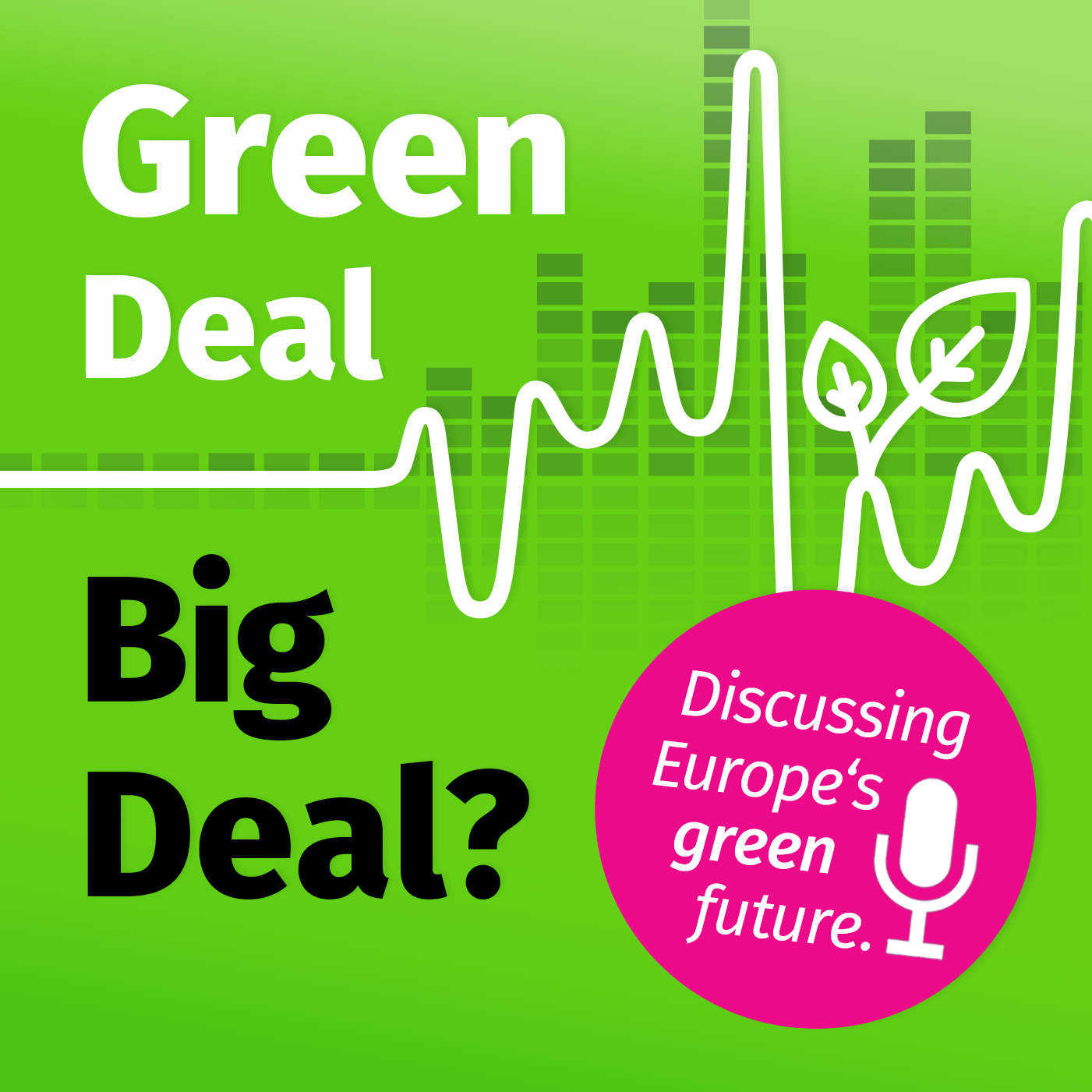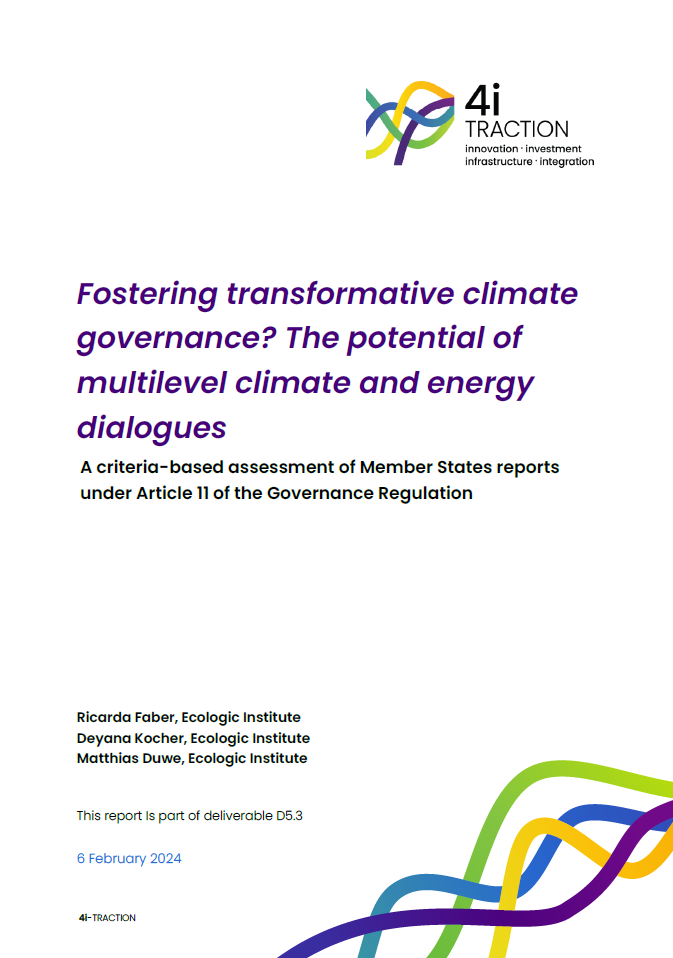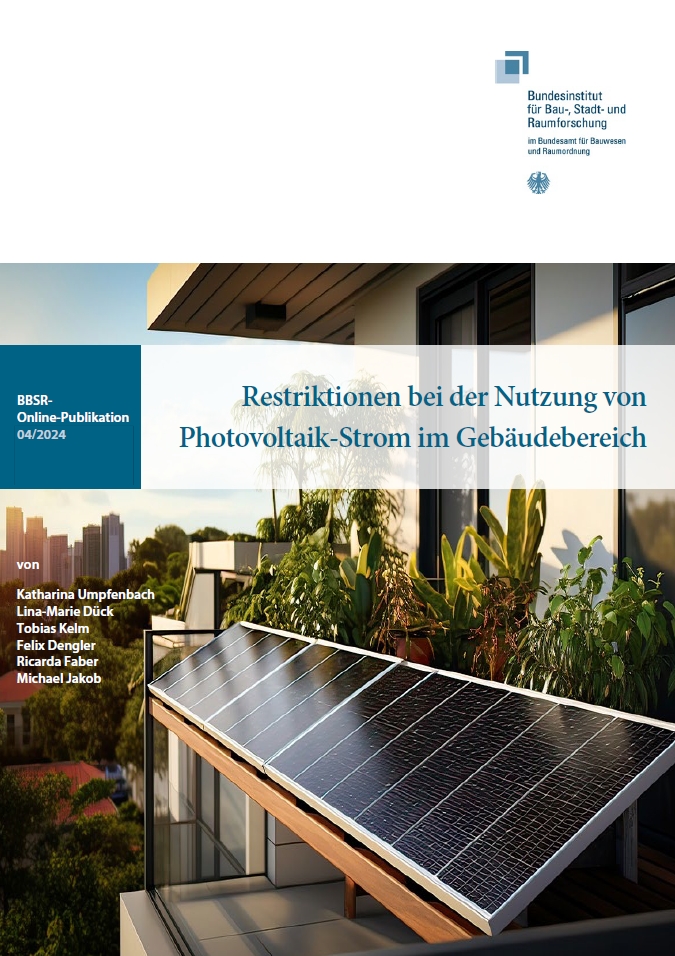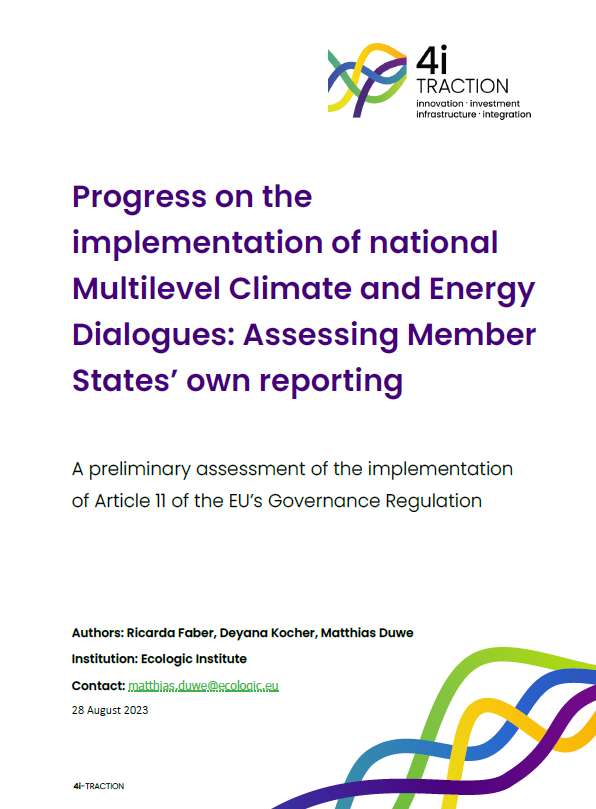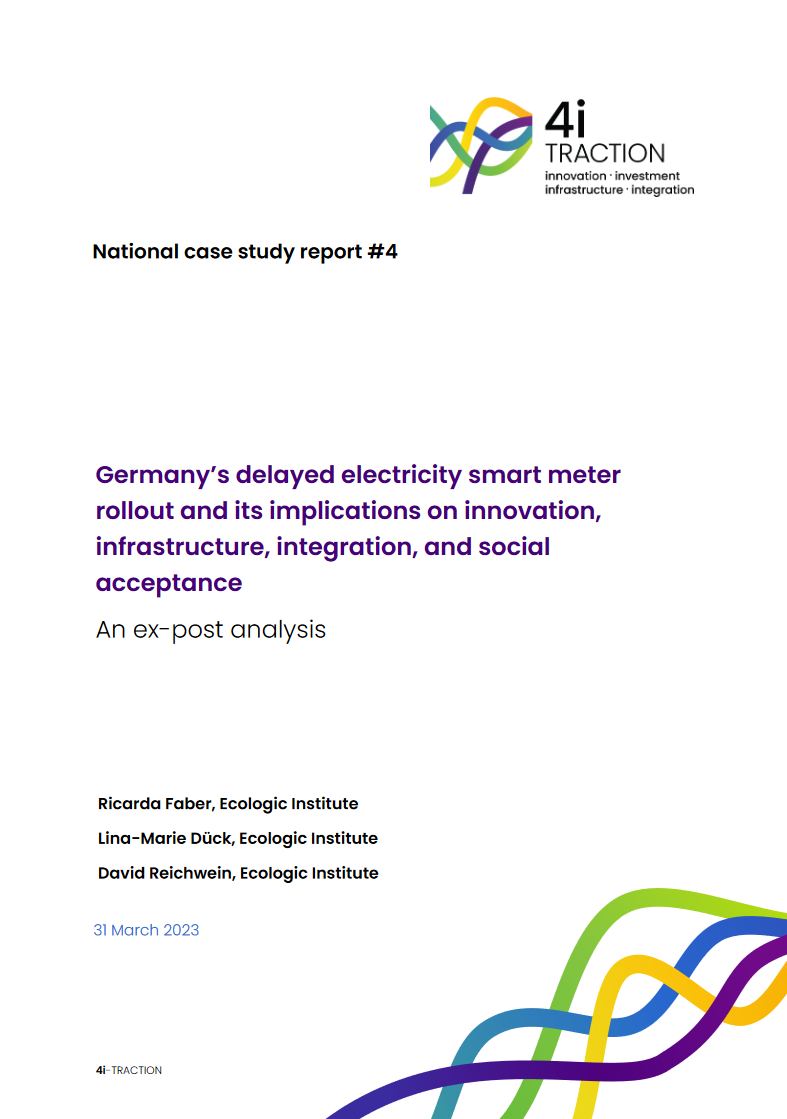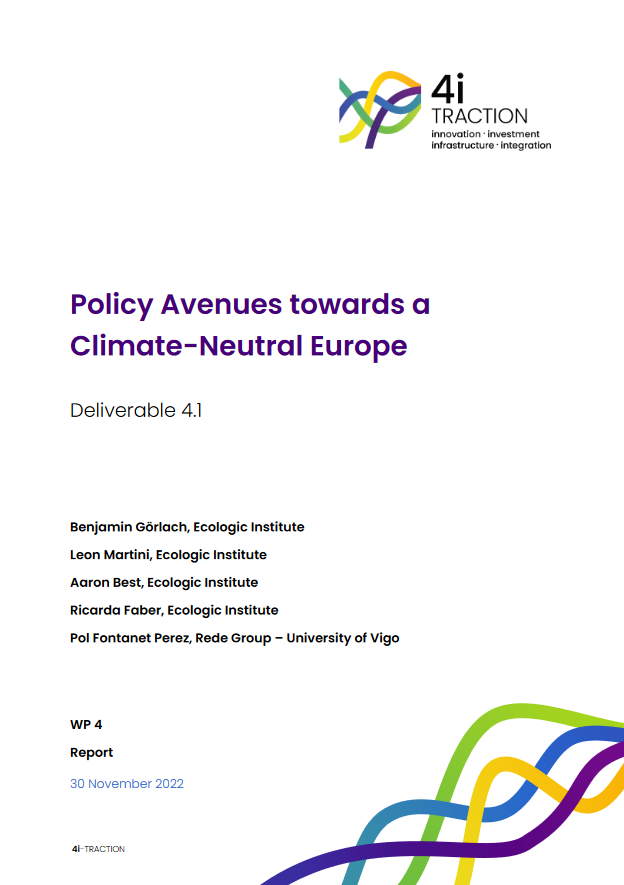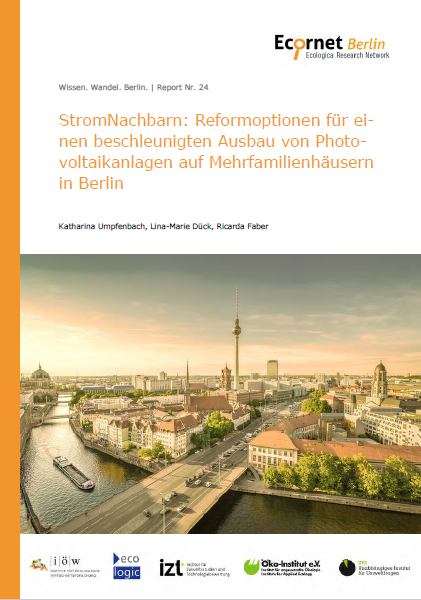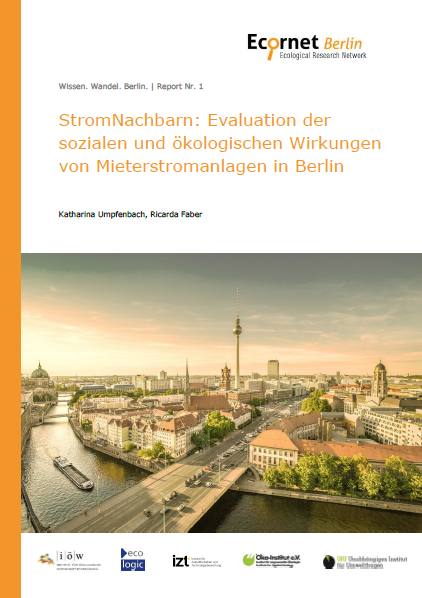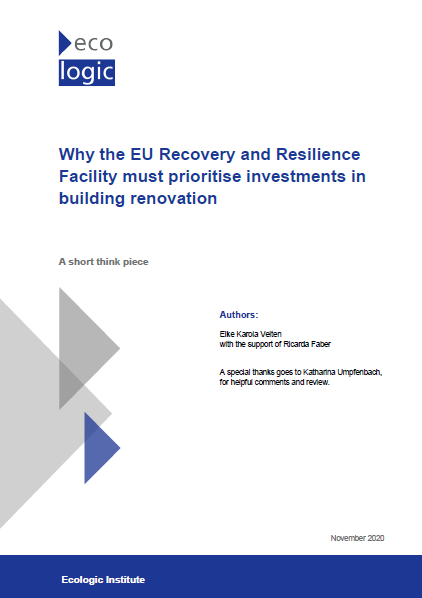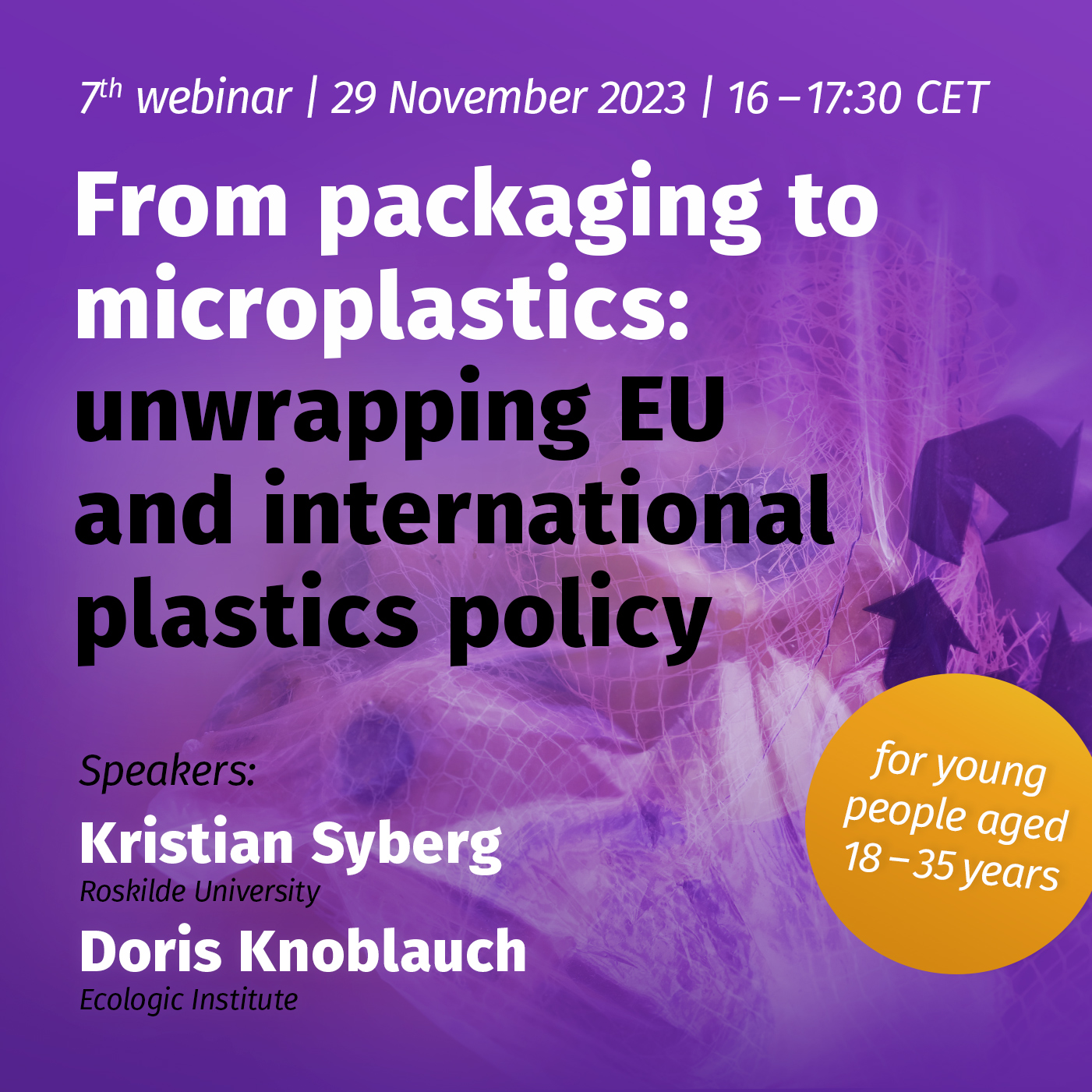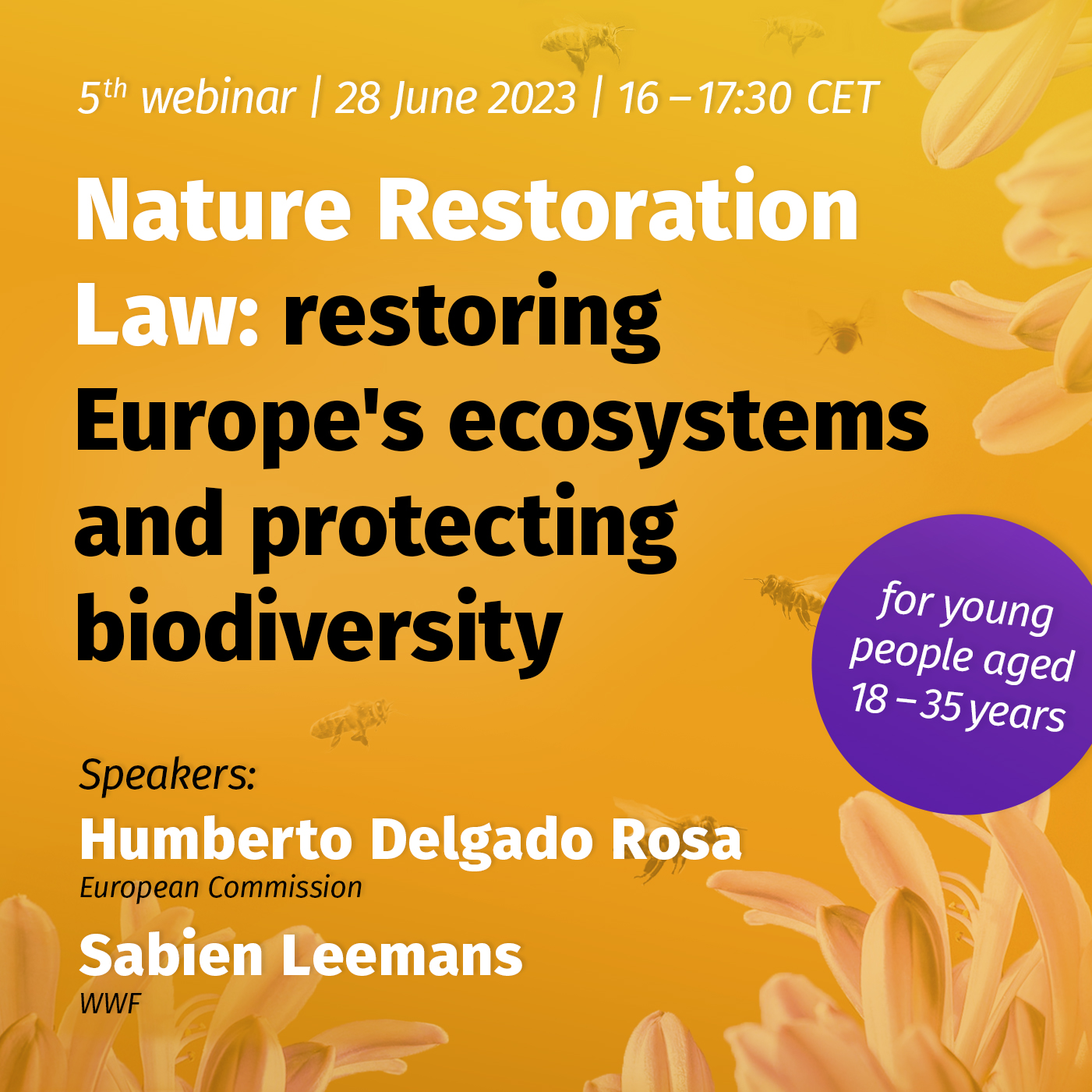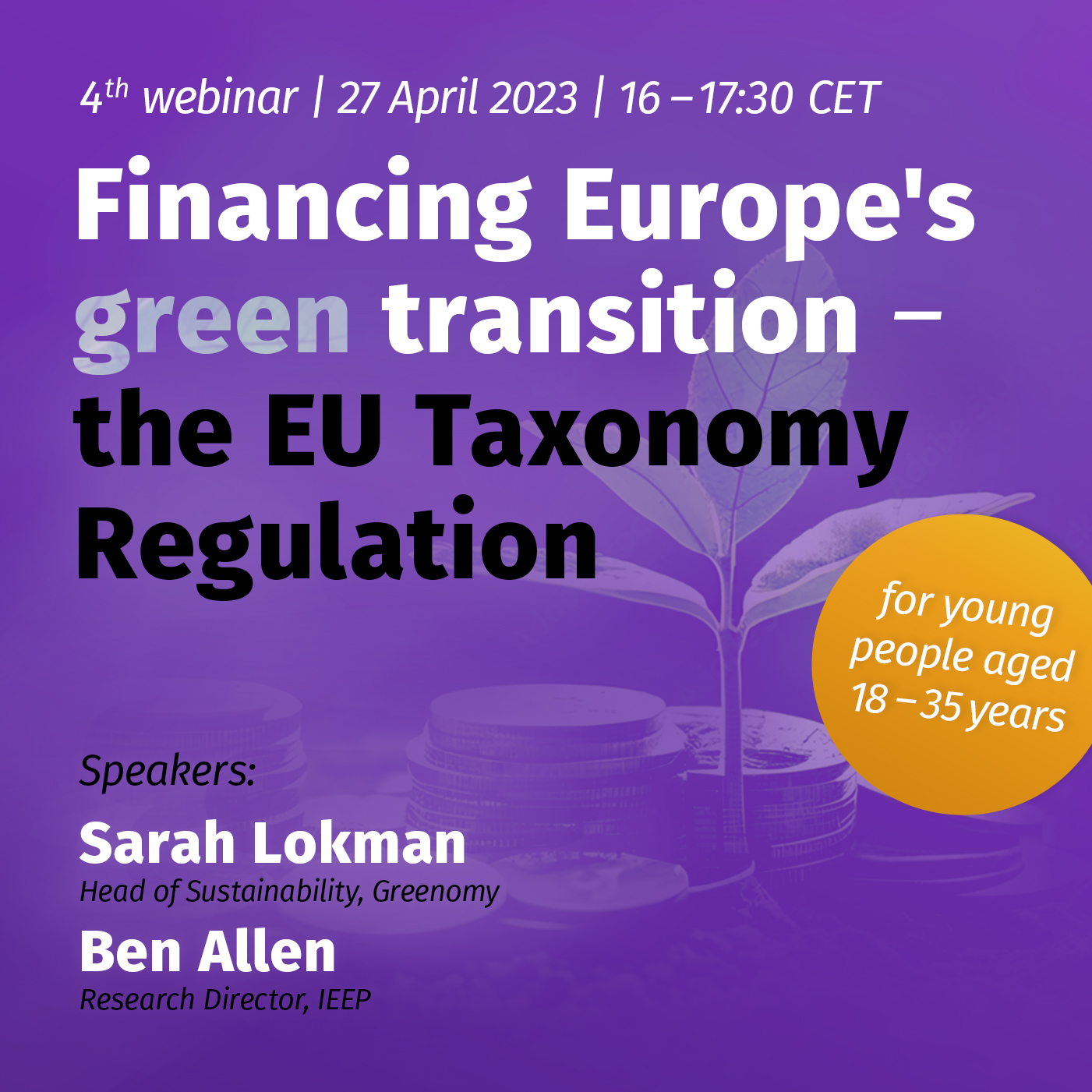
Ricarda Faber
MA (Public Policy)
BA (Political Science)
Researcher
- Team
- Topics
Ricarda Faber is Researcher at Ecologic Institute. Her work focuses on the design, implementation and effects of energy and climate mitigation policy, and governance systems for the just transition to climate neutrality. She is a native German speaker and fluent in English.
At Ecologic Institute, her project portfolio includes regulatory approaches that promote the green transition including renewable energies, energy efficiency, sector coupling, digitalization, and governance frameworks. Ricarda Faber supports the coordination of the EU Horizon 2020 research project "Transformative Policies for a Climate-Neutral European Union (4I-TRACTION)". As part of the project, she also conducts research on multilevel climate and energy dialogues, conceptualizes the "CLIMATE ON AIR - Discussing the future of EU climate policy" podcast series and led an ex-post study on the German smart metering rollout. Moreover, in the research project StromNachbarn, which was part of the research network Ecornet Berlin, Ricarda Faber analyzed the socio-economic effects of prosumerism in Berlin by means of a tenant survey. In the project WenaMoNi, she uncovered barriers and opportunities for sustainable mobility in Lower Saxony (Germany).
Next to her research and writing, Ricarda Faber is co-host of the podcast and webinar series "Green Deal - Big Deal?", which examines the many facets of the European Green Deal. To foster stakeholder engagement and disseminate project output, she has led the organisation of conferences in Brussels, targeted workshops, a dinner dialogue, and webinars.
Before joining Ecologic Institute, Ricarda Faber worked as Project Assistant at adelphi Consult in the fields of sustainable consumption and international climate policy. There, she gained experience in sustainability indicators, best practice case study research, and stakeholder engagement.
Ricarda Faber holds a master's degree in Public Policy with a focus on energy, climate, and governance from the University of Potsdam. As a scholarship holder of the Swiss-European Mobility Program, she studied for one semester at the University of Lausanne (UNIL). Under the Climate Finance and Policy and Energy and Technology Policy groups at the Swiss Eidgenössische Technische Hochschule (ETH) Zurich, Ricarda Faber wrote her master's thesis on the politics of green financial policy by analyzing the EU Taxonomy's design process. She completed her bachelor's degree in Political Science from the Free University of Berlin (FUB), which she centred on climate change. Ricarda Faber received a grant from the University Alliance for Sustainability (UAS) to study the topic of "Societal Transformation to Sustainability" in Beijing during a student exchange with Peking University.
Contact Ricarda Faber by Email
Selected projects by Ricarda Faber
Transformative Policies for a Climate-neutral European Union (4i-TRACTION)
- Duration
-
-
- Funding
-
European Commission, Directorate-General Research & Innovation (DG Research & Innovation), International
Green Deal – Big Deal? Discussing Europe's Green Future
- Duration
-
-
- Funding
Restrictions of the EEG Regulations for the Use of PV Electricity in the Building Sector
- Duration
-
-
- Funding
-
Federal Office for Building and Regional Planning (BBR), Germany
The EU Taxonomy as an Instrument to Reach Climate Neutrality
- Duration
-
-
- Funding
-
Stiftung Mercator, Germany
Evidence-based Assessment for the Design of the German Energy Transition (Ariadne)
- Duration
-
-
- Funding
-
Federal Ministry of Education and Research (BMBF), Germany
ElectricityNeighbours – Can tenants in Berlin's apartment buildings become prosumers through solar power projects and sector coupling?
- Duration
-
-
- Funding
-
Governing Mayor of Berlin, Senate Chancellery , Germany
Energy Prosumption in Europe
- Duration
-
-
- Funding
-
European Environment Agency (EEA), International
Buildings in Recovery Plans
- Duration
-
-
- Funding
-
European Climate Foundation (ECF), International
Transitioning to Net Zero' Success Stories
- Duration
-
-
- Funding
-
Smart Energy for Europe Platform (SEFEP), International Agora Energiewende, Germany
Leapfrogging to a Resilient Europe
- Duration
-
-
- Funding
-
Laudes Foundation, International Partners for a New Economy (P4NE), Switzerland
Integrated Approaches for the Renovation and Modernisation of the Built Environment
- Duration
-
-
- Funding
-
European Commission, Directorate-General Energy (DG Energy), International
Selected publications by Ricarda Faber
Faber, R., Kocher, D., Duwe, M. (2024): Fostering transformative climate governance? The potential of multilevel climate and energy dialogues. A criteria-based assessment of Member States’ reports under Article 11 of the Governance Regulation. Ecologic Institute; Berlin.
Umpfenbach, K.; Dück, L.-M.; Kelm, T.; Dengler, F.; Faber, R.; Jakob, M., 2024: Restrictions on the Use of Photovoltaic Electricity on Buildings, BBSR-Online-Publikation 04/2024, Bonn.
Ecologic Institute 2024: Regulatory Leverage: How Can the EU Foster a Green Investment Shift? Podcast. Online: https://www.4i-traction.eu/outputs/podcast-series-episode-4-investment
Ecologic Institute 2024: Ensuring a just transition to net-zero emissions. Online: https://greendealbigdeal.podigee.io/12-just-transition
Faber, R., Kocher, D., Duwe, M. (2023). Progress on the implementation of national Multilevel Climate and Energy Dialogues: Assessing Member States' own reporting. A preliminary assessment of the implementation of Article 11 of the EU's Governance Regulation. 4i-TRACTION Procedural Governance Series. Ecologic Institute, Berlin.
Ecologic Institute 2023: Europe's race to renewables – cheaper, vaster, faster. Online: https://www.greendealbigdeal.eu/podcast/episode-11/
Ecologic Institute 2023: The EU’s Climate Neutrality Challenge: Can Infrastructure be the Game Changer? Podcast. Online: https://www.4i-traction.eu/outputs/podcast-series-episode-3-Can-Infrastructure-be-the-Game-Changer
Ecologic Institute 2023: What is the role of innovation in making the EU climate neutral? Podcast. Online: https://www.4i-traction.eu/outputs/podcast-series-episode-2-innovation
Faber, R., Dück L.M., Reichwein, D. (2023): Germany’s delayed electricity smart meter rollout and its implications on innovation, infrastructure, integration, and social acceptance. An ex-post analysis. National Case Study of the 4i-TRACTION Deliverable D2.6. Ecologic Institute. Berlin
Ecologic Institute 2023: Nature Restoration Law: restoring Europe's ecosystems & protecting biodiversity. Online: https://www.greendealbigdeal.eu/podcast/episode-10/
Ecologic Institute, detektor.fm 2022: EU-Taxonomie: Ein guter Schritt für mehr Nachhaltigkeit? Knowledge for Future – Der Umwelt-Podcast. 21 December 2022. Online: https://detektor.fm/politik/knowledge-for-future-eu-taxonomie
Görlach, Benjamin, Leon Martini, Ricarda Faber, Aaron Best, Pol Fontanet Pérez (2022): Report on core instruments and avenues for transformative climate policies. 4i-TRACTION Deliverable 4.1. Ecologic Institute; Berlin.
Ecologic Institute 2023: What is transformative climate policy? Podcast. Online: https://www.4i-traction.eu/outputs/podcast-series-episode-1-what-transformative-eu-climate-policy
Ecologic Institute 2023: CLIMATE ON AIR – Discussing the future of EU climate policy. Podcast. Online: https://www.4i-traction.eu/outputs/4i-traction-podcast-climate-air-discussing-future-eu-climate-policy
Umpfenbach, Katharina et al. 2022: StromNachbarn: Reformoptionen für einen beschleunigten Ausbau von Photovoltaikanlagen auf Mehrfamilienhäusern in Berlin. Wissen. Wandel. Berlin. | Report Nr. 24. Berlin: Ecologic Institut.
Umpfenbach, K., Faber, R. (2021). StromNachbarn: Evaluation der sozialen und ökologischen Wirkungen von Mieterstromanlagen in Berlin, Berlin: Ecornet Berlin.
Velten, Eike Karola and Ricarda Faber 2020: Why the EU Recovery and Resilience Facility must prioritise investments in building renovation. A short think piece. Berlin: Ecologic Institute.
Selected events by Ricarda Faber
Digital Event:From Packaging to Microplastics: Unwrapping EU and international plastics policy
- Date
-
- Location
- online
Digital Event:Europe's Energy Transition – Rolling out renewables and infrastructure
- Date
-
- Location
- online
Digital Event:Nature Restoration Law: Restoring Europe's ecosystems and protecting biodiversity
- Date
-
- Location
- online
Digital Event:Models for the Generation and Use of PV Electricity for Multi-party Buildings
- Date
-
- Location
- Berlin, Germany
Digital Event:Financing Europe's Green Transition – The EU Taxonomy Regulation
- Date
-
- Location
- online
Dinner Dialogue:What's Next for the EU Taxonomy for Sustainable Finance?
- Date
-
- Location
- Berlin, Germany
Digital Event:What Role do Tenants Play in the Energy Transition in Berlin?
- Date
-
- Location
- Berlin, Germany
Conference:Leapfrogging to a Resilient Europe
- Date
-
-
- Location
- online





